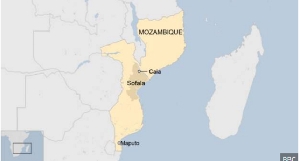- Home - News
- TWI News | TV
- Polls
- Year In Review
- News Archive
- Crime & Punishment
- Politics
- Regional
- Editorial
- Health
- Ghanaians Abroad
- Tabloid
- Africa
- Religion
- Election 2020
- Coronavirus
- News Videos | TV
- Photo Archives
- News Headlines
- Press Release
Business News of Tuesday, 25 June 2013
Source: GNA
Government asked to create jobs through small-scale mining
Government must tap into opportunities that the small scale mining sector offers to create employment, Mr George Kwatia, PwC Ghana Tax Partner and Mining Leader for West Africa, has said.
“The presence of the Chinese in Ghana should demonstrate to us that there are significant opportunities within the country,” Mr Kwatia said at the launch of PwC 2013 mine report in Accra.
He said the current challenges that the mining industry was facing with regard to Chinese nationals engaging in illegal mining, calls for adequate regulation, including the enforcement of existing rules, not only of the industry but also of the economy.
According to the mine report, "the mining industry faces a confidence crisis, that is confidence over whether cost could be controlled, return on capital will improve and commodity prices will not collapse, among others".
Although it was a turbulent year for commodity prices, PwC’s analysis of the largest 40 miners shows total market capitalisation was roughly the same at the end of 2012 as the start - $1.2 trillion - but not for gold miners’’.
The report said the gold miners in the top 40 lost $29 billion in 2012, while in the first four months of 2013 they lost a further $58 billion in value.
It said this followed a major sell-off in April after the largest one-day percentage drop in gold prices since the 1980s.
Meanwhile, since April 2012, half of the Chief Executive Officers had been replaced at the largest 10 miners.
Commenting on the local situation, George Kwatia said that the issues affecting the industry in Ghana were not materially different from the issues facing the industry globally.
He cited a decline in revenue of the mining companies because of falling commodity prices and increasing operating costs of mining businesses.
Mr Kwatia said in addition to typical inputs of the sector, “unique to Ghana are specific cost such as high electricity and fuel cost as well as the adverse impact of load shedding and power cuts on mining operations".
He said, besides, there is high gearing of mining companies in order to preserve investment capital and capital repayments in the face of government policy on carried interest.
Mr Kwatia said there was uncertainty in the investment climate of the country as the government was beginning to question existing concessionary fiscal regime offered to mining companies, including seeking to renegotiate stability agreements, which had been in place for years.
He said: “There is a high tax cost as the government seeks to introduce additional taxes such as National Stabilisation Levy and Windfall Profit Tax in the face of declining gold prices.”
Mr Kwatia said the way forward for mining companies was to focus on operational efficiency in order to reduce cost.
“Expenditure control will become one of the key indicators that the boards and investors will be watching,” Mr Kwatia said.
He called on the government to keep expenditure under control and widen the tax net to cover the informal sector of the economy, as opposed to introducing higher and newer taxes in the industry.
Mr Felix Addo, Country Senior Partner, expressed excitement about the establishment of a Mining Centre of Excellence in Ghana.
He said PwC in servicing clients in the Africa Region was seeking to establish three hubs within Africa to house and drive mining excellence.
Mr Addo said Ghana, South Africa and Tanzania had been considered as most appropriate locations for these hubs.
He said that Ghana was chosen as the location to drive mining excellence within the West Africa Region.
Having had several years of mining activities, Ghana was well positioned to bring value added solutions to the mining industry operating in the sub-region, Mr Addo said.










